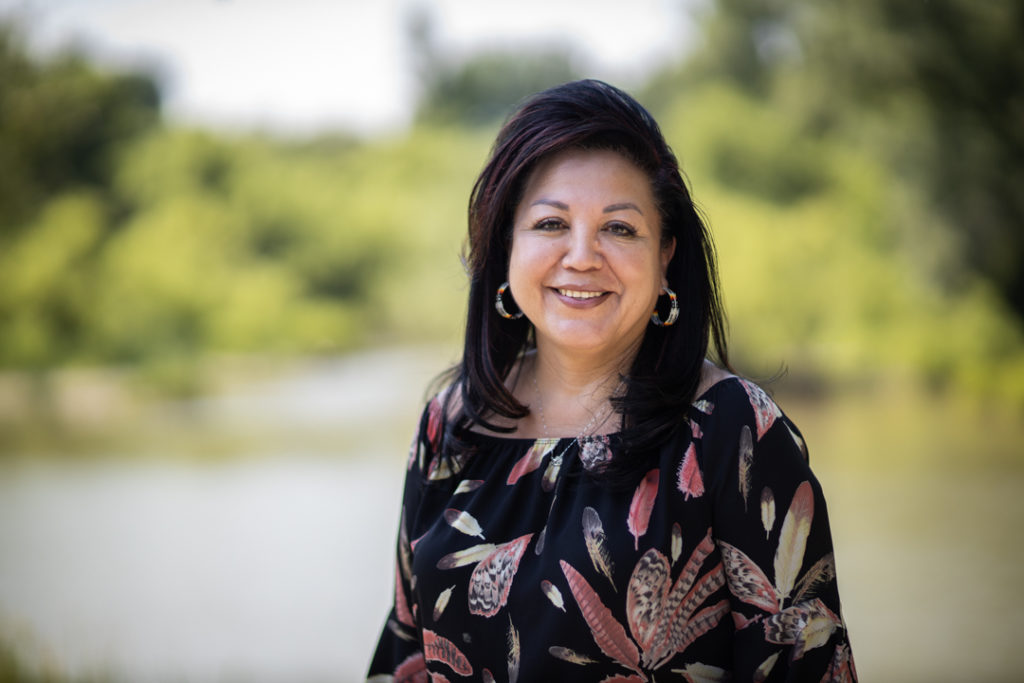
Introducing… an Indigenous Cancer Lead
Debra Jonathan works with the Hamilton Niagara Haldimand Brant (HNHB) Regional Cancer Program as the Regional Indigenous Cancer Lead to support cancer care for Indigenous people across the Region. Her work covers cancer prevention, diagnosis, treatment, recovery and palliative care.
“Let’s be proactive and not reactive to this disease.”
The Lead role is one of three dedicated roles in the region that supports Indigenous priorities in cancer care. The role of the Lead is to engage and collaborate with provider and community partners across the region to bridge patient and provider understanding of Indigenous cancer control, implement the Indigenous Cancer Plan and advocate for addressing the health needs of Indigenous people in the HNHB region.
Jonathan is also an active member of the Reclaiming Well-Being: Cancer-Free Lives committee. The purpose of the committee is to provide guidance and advice to the HNHB Cancer Program to ensure that cancer prevention and screening programs, through to palliative care and survivorship services, continuously improve and evolve to meet emergent needs identified by the Six Nations and MCFN communities.
What is your regional role?
I am the Regional Indigenous Cancer Lead for the Hamilton Niagara Haldimand Brant Region.
What is your full-time role?
I have recently stepped into a new role as the A/Zone Nurse Manager for Southern Ontario, First Nations & Inuit Health Branch, Indigenous Services Canada. Prior to that, I was the Nurse-in-Charge for the Six Nations of the Grand River First Nations Community for 12 years.
Why is cancer screening important?
Cancer screening is important because it saves lives. First Nations people are among those who are at highest risk for various types of cancer. Many times our first visit with patients is when they are well into the disease and at the later stages. We can do so much more to help when we can screen and catch cancer early, initiate treatment, provide support and make lifestyle changes. Let’s be proactive and not reactive to this disease. Together let us change the course of this disease to a positive one for First Nations people.
What is a positive thought that you would like to share?
I am going to share a saying that my late grandmother always told us as teens growing up: “It’s okay to look back – but don’t stare.” She encouraged us to accept our mistakes in life as moments that have made us stronger and wiser and not to dwell on the past. Focus on what is ahead of you and anticipate the future to be the greatest moments of your life.
What do you do to decompress?
To decompress, I like to take early morning walks, watch the sun rise and thank the Creator for another day.
Related:
Cancer screening coach services Indigenous communities
